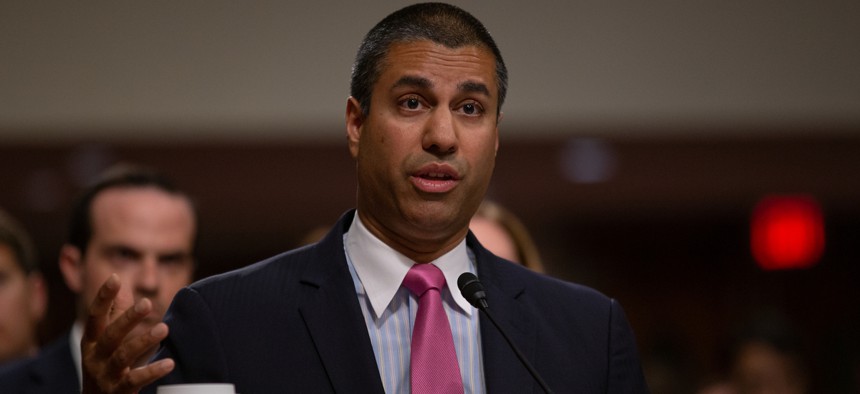FCC Issues Waiver For Telecom Supporting Zoom and WebEx Traffic

FCC Chairman Ajit Pai Aaron Schwartz/Shutterstock
Without the waiver, Inteliquent would be subject to “significant cost increases” that would prevent the companies from offering free teleconference services.
The COVID-19 pandemic has created some unusual circumstances across the globe, including an immediate influx in the number of people—working adults, school-age children, quarantined elders—using free teleconferencing services.
As users flock to two of the most prominent teleconferencing services—Zoom and WebEx—the traffic carrier, Inteliquent, has been in violation of the Federal Communication Commission’s access arbitrage rules, also known as access stimulation.
“Access stimulation, also referred to as ‘traffic pumping,’ occurs when a local carrier with high access charge rates enters into an arrangement with another company with high call volume operations, such as chat lines, adult entertainment calls, or ‘free’ conference calls,” according to a FCC information page.
In normal times, FCC would consider this access stimulation a detriment to consumers, as it would increase long distance rates for all customers, not just those taking advantage of the high-volume services.
“It also harms competition by giving companies that offer, for instance, free conference calling services a competitive advantage against companies that charge their customers for the service,” FCC states.
As such, Inteliquent would be put into a new service tier that would include additional costs and “financial responsibilities,” according to the FCC’s Wireline Competition Bureau.
However, access to these free services is critical as the nation moves to mass teleworking.
“This nationwide pandemic has fundamentally changed our daily lives,” FCC Chairman Ajit Pai said in a statement Friday. “Americans across the country—me included—have transitioned to teleworking, and their kids have transitioned to remote learning. Inteliquent’s customers enable these things to happen by providing popular conference calling platforms.”
Pai noted the access arbitrage rules were established to prevent carriers from taking advantage of the system.
“They weren’t intended to ensnare companies that, during a national emergency, are experiencing unprecedented call volumes that would push them out of compliance without a waiver,” he said.
The waiver is set to expire on June 1. Inteliquent will have the option to request an extension at that time, if needed.
Help us understand the situation better. Are you a federal employee or contractor with information about how your agency is handling the coronavirus? Email us at newstips@nextgov.com.






